Think German Shepherds Are Dangerous? Read This Before You Decide

German Shepherds are powerful, intelligent, and wildly misunderstood dogs. For decades, they’ve been pigeonholed as “aggressive” or “dangerous” thanks to a mix of media narratives. But the truth is far more nuanced, so let’s get into 20 of the most common German Shepherd aggression myths.
Aggression Is a Breed Trait
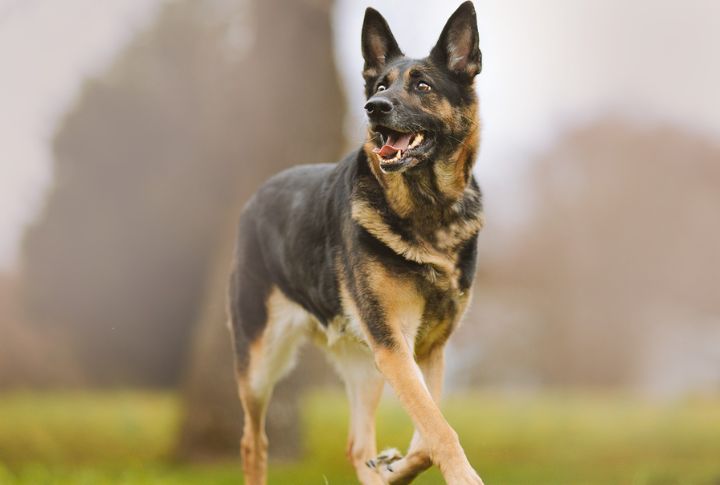
Just because German Shepherds have a history as guard and herding dogs doesn’t mean they’re naturally aggressive. That’s like saying all chefs are picky eaters. These dogs are responsive and alert, but without training or socialization, any breed can become reactive. Behavior is shaped, not pre-programmed.
Guarding Doesn’t Mean Attacking
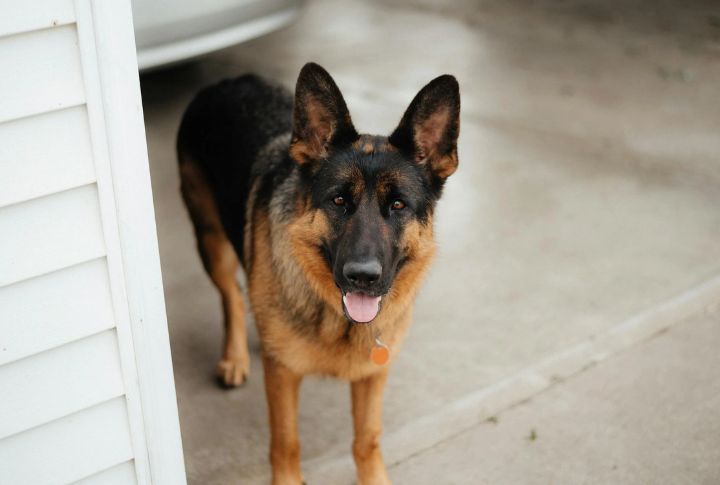
It’s easy to confuse protectiveness with aggression, but there’s a big difference. A dog that alerts you when someone’s at the door is simply doing its job. German Shepherds are loyal watchdogs, not wild-eyed aggressors waiting for trouble. They know when to react—and when not to.
Aggression Isn’t Always What It Looks Like
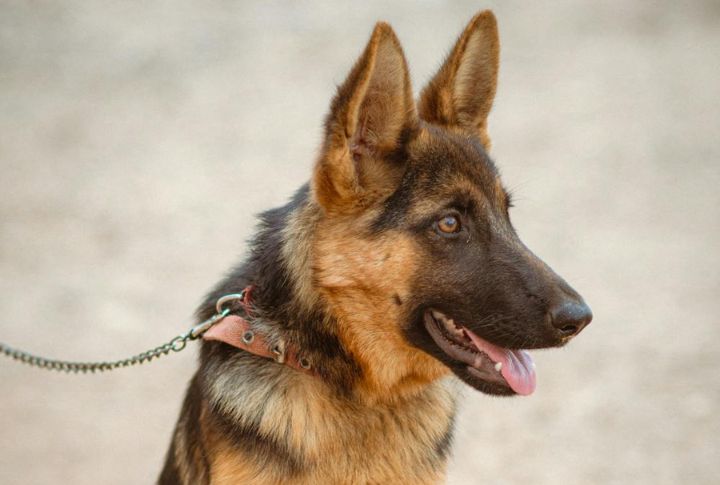
A bark, growl, or raised hackles can look scary, but that doesn’t mean a German Shepherd is dangerous. Think of these as doggy warnings, like a car honking its horn. They’re communication tools. Often, aggression is confused with fear or overexcitement. The intent behind the behavior is what matters.
Only Police Dogs Can Handle That Energy
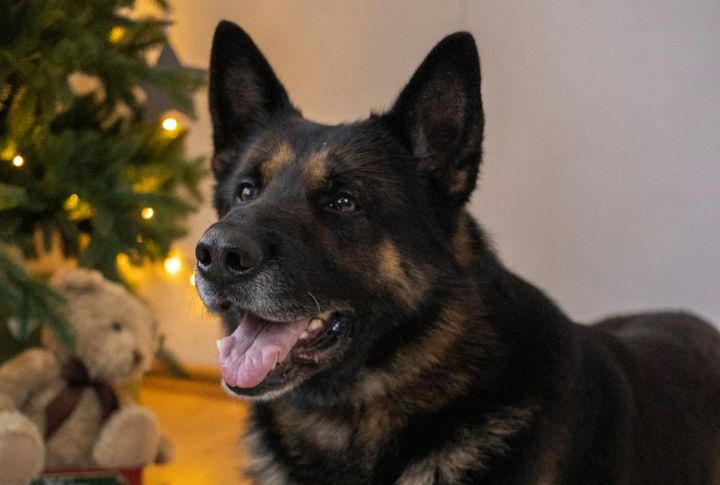
You’ve probably heard someone say, “Oh, those dogs are for the military.” Not true. German Shepherds can thrive in homes, apartments, and suburban backyards as long as their energy is directed somewhere. Hikes, nose work, games—they just want a job, not a badge. Civilian life suits them just fine.
Kids and Shepherds Don’t Mix? Wrong
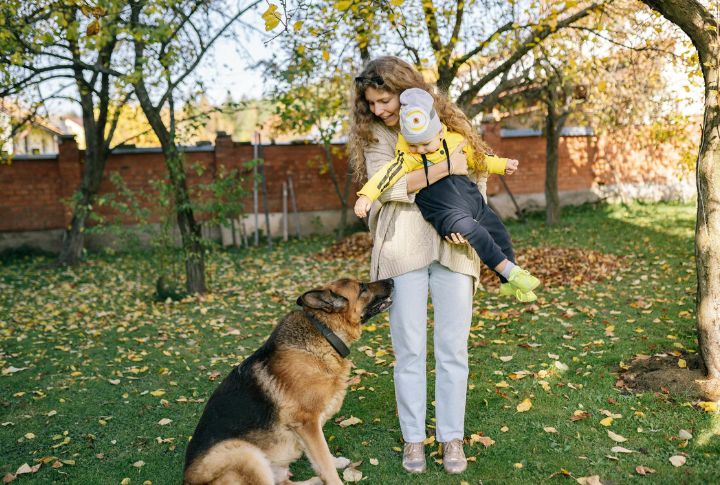
This one’s especially frustrating. German Shepherds are famously loyal and patient when raised around children. Supervision and boundaries are a must (for both kids and dogs), but saying they’re not kid-friendly? That’s just false. With the proper training, they can be gentle playmates and protectors of the whole household.
All Big Dogs Are Dangerous, Right?
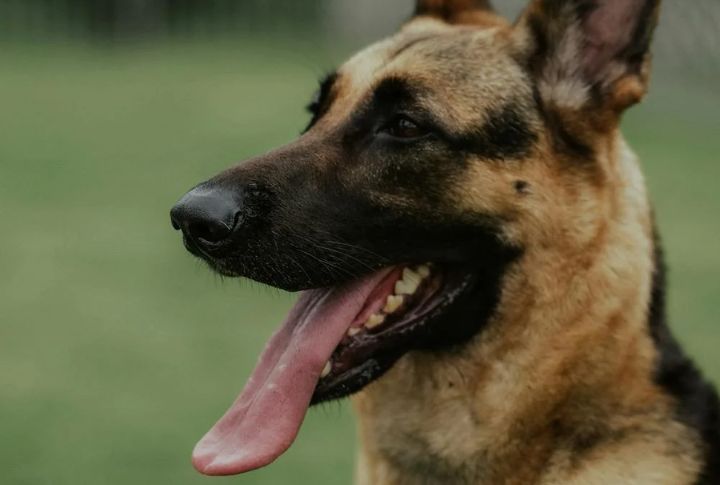
Nope. A Chihuahua can bite just as easily as a German Shepherd. The difference? One has bigger teeth. Size doesn’t equal danger—it just affects the outcome. Many smaller breeds snap more often, but it’s rarely reported. Big dogs like GSDs get a bad rap because their bites make headlines.
They’re Born to Bite
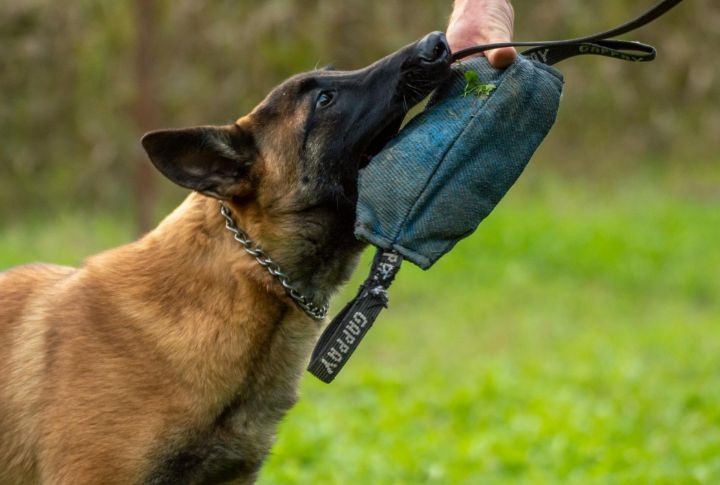
Even among working lines, aggression isn’t bred into German Shepherds. Drive, yes. Focus, definitely. But biting? No. What they’re really bred for is intelligence. If a shepherd bites, it’s usually out of fear, pain, or poor handling. We can’t say it’s because they’re genetically primed to be mean.
Poor Socialization Isn’t Just a Shepherd Problem

Blaming the breed when a dog hasn’t been socialized is like blaming the car for a crash when the driver never learned to steer. Socialization matters for all dogs. As for German Shepherds, they just need their early training taken seriously because of their strength and sensitivity.
Shepherds Can’t Be Trusted Off-Leash
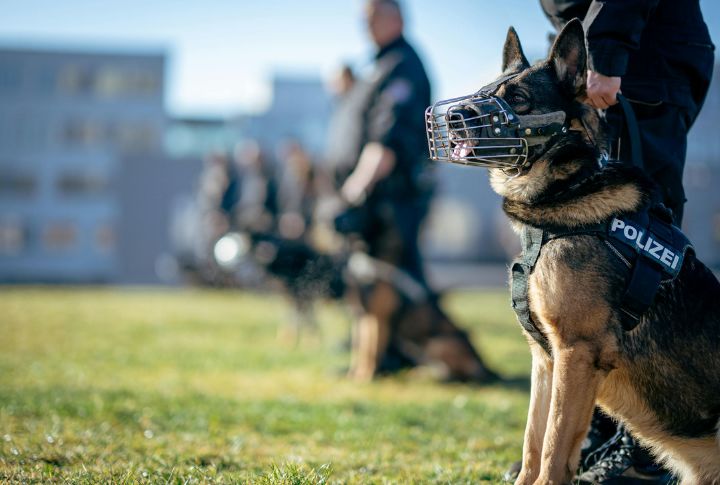
While some people assume GSDs will bolt or go rogue, the reality is—they’re one of the best breeds to train for recall, especially useful in police and service roles. With consistent training, many shepherds can be trusted off-leash in the right environment. It’s not a breed issue—it’s a training one.
Aggression and Reactivity Are the Same Thing
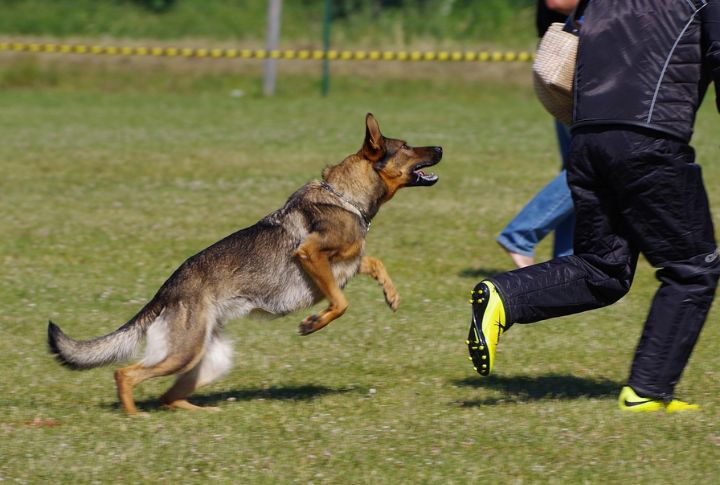
This one trips up even experienced dog owners. Reactivity means a dog overreacts to stimuli, often out of frustration or fear. Aggression is intent to harm. And German Shepherds are often merely reactive. Knowing the difference helps owners support their pooches instead of unfairly labeling them.
All GSDs Are Serious and Stern

Ever met a goofball German Shepherd? Because they exist. Many are downright clownish with their families, obsessed with belly rubs and chasing balls in hilarious zig-zags. The myth that they’re cold or stern probably comes from how focused they look. Make no mistake: some are just big, silly hams.
Their Prey Drive Means They’ll Attack People
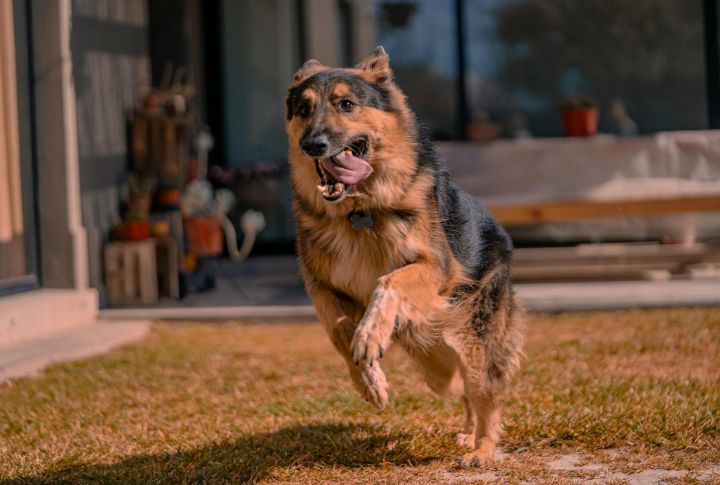
Prey drive might send them chasing squirrels or rabbits, but it doesn’t mean they’ll target people. That behavior is natural in most dogs, especially working breeds. Confusing prey drive with aggression is like saying someone who loves track and field is probably dangerous. Totally unrelated.
They Can’t Be Trusted with Other Pets
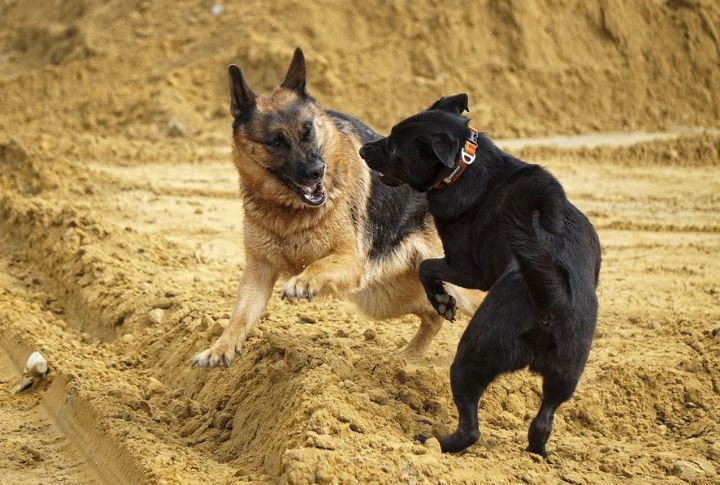
This depends entirely on upbringing, not breed. Plenty of German Shepherds coexist peacefully with cats, chickens, and other dogs. If they’re raised around other animals, most adapt just fine. The myth that they’re ticking time bombs around pets stems from a misunderstanding of their energy.
They’re Too Dangerous for First-Time Owners
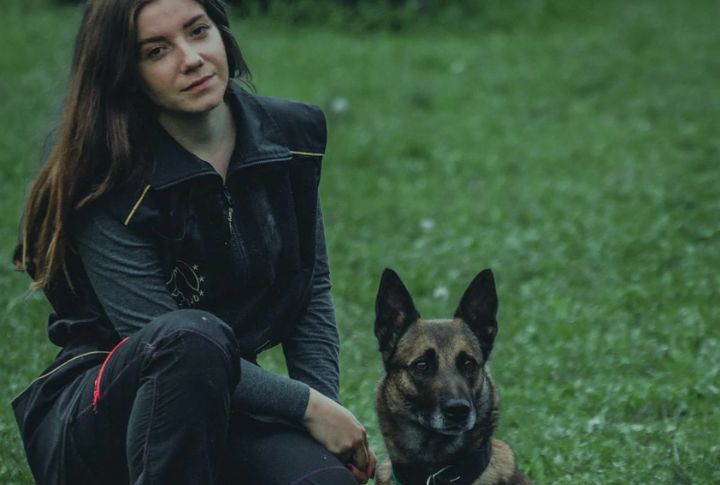
This myth keeps a lot of potential matches from happening. It’s true that GSDs need structure and consistency. However, first-time owners who commit to training, enrichment, and learning dog behavior can absolutely raise happy, balanced shepherds. It’s a must to remember that experience helps, but commitment matters more.
All German Shepherds Bite
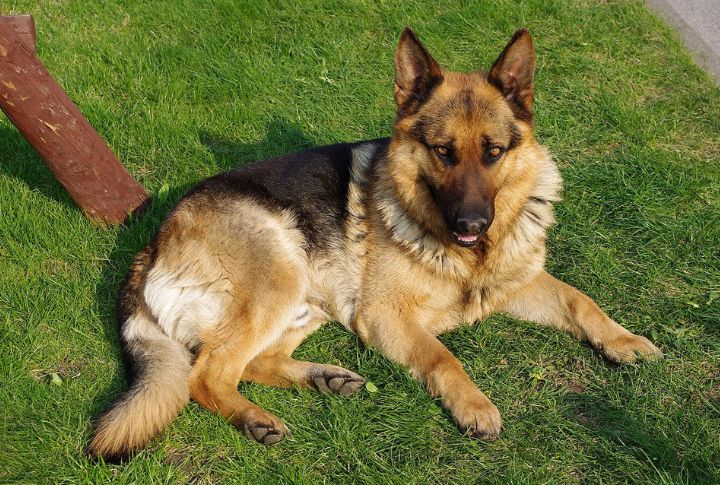
Every dog has teeth. Biting isn’t a breed trait—it’s a response to something, whether fear, pain, or mistreatment. Not all German Shepherds bite, and many go their whole lives without ever snapping at anything. If they’re biting? Something’s gone wrong. It’s not their default behavior.
Only Certain Lines Are Aggressive
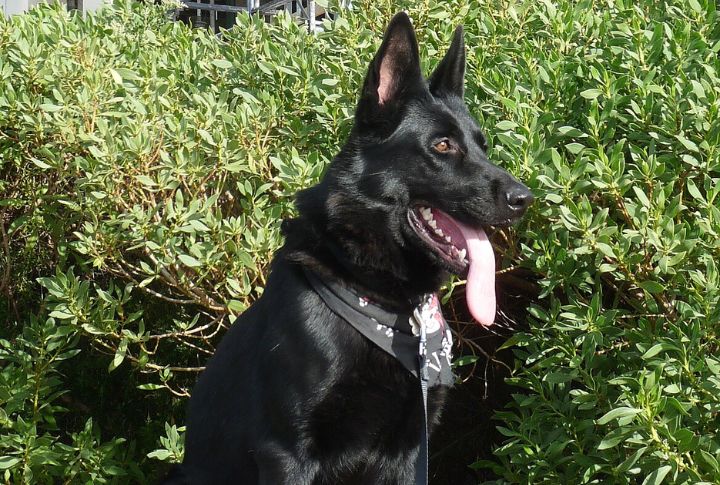
There’s a lot of talk about working lines being “sharper” than show lines. While some canines may have stronger drives, no particular bloodline guarantees aggression. Lineage can influence temperament, sure, but how a a pup is raised, trained, and treated carries far more weight.
They’ll Turn on Their Owner
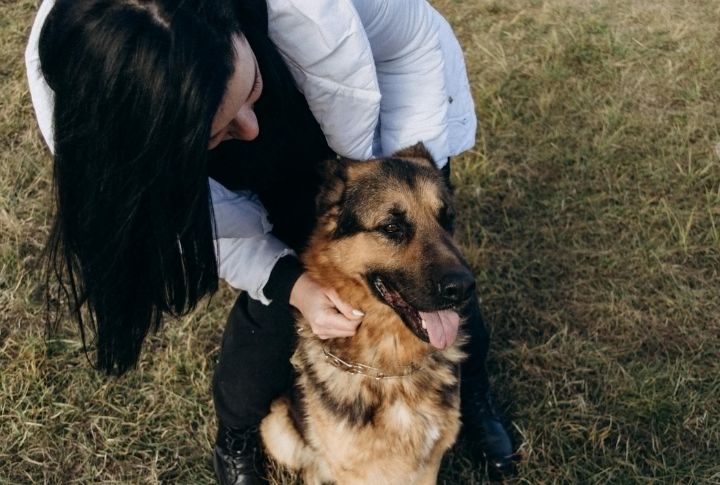
This old myth is persistent and baseless. Dogs don’t randomly “turn” on their people. If a German Shepherd shows aggression toward its handler, it’s likely from fear, confusion, or a lack of proper boundaries and training. Sudden behavior changes should prompt a vet visit, though.
Muzzles Are Only for Aggressive Dogs
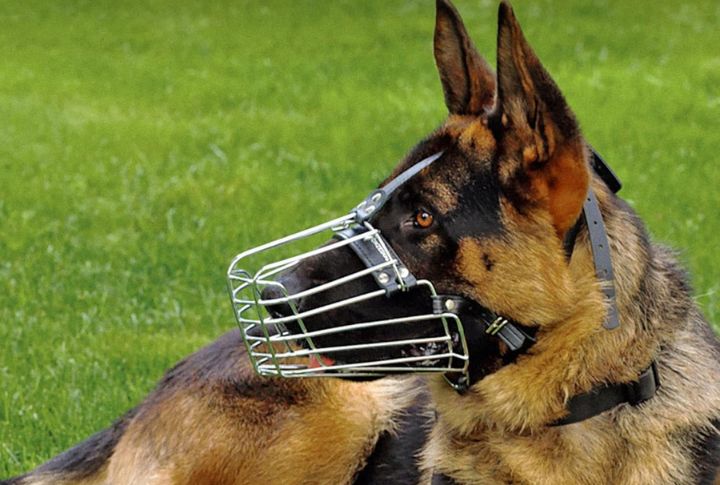
Wrong again. Muzzles are a management tool, like a leash or harness. Many responsible owners use them to keep their dogs (and others) safe while training or navigating stressful environments. Using one doesn’t mean a German Shepherd is dangerous—it means their owner is being thoughtful and cautious.
Once a Biter, Always a Biter
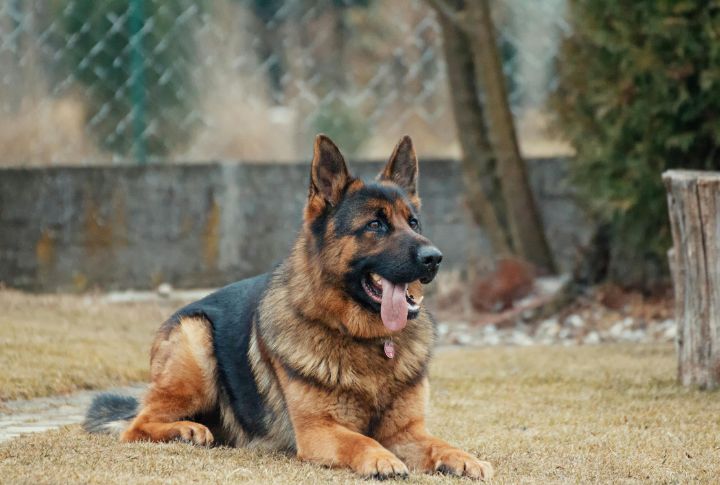
False! Behavior can change. With the right combination of veterinary care, training, and environment changes, many German Shepherds with bite histories go on to live peaceful, well-managed lives. The key is understanding the “why” behind the behavior and addressing it at its root—not just punishing the outcome.
They’re Just Too Much Dog
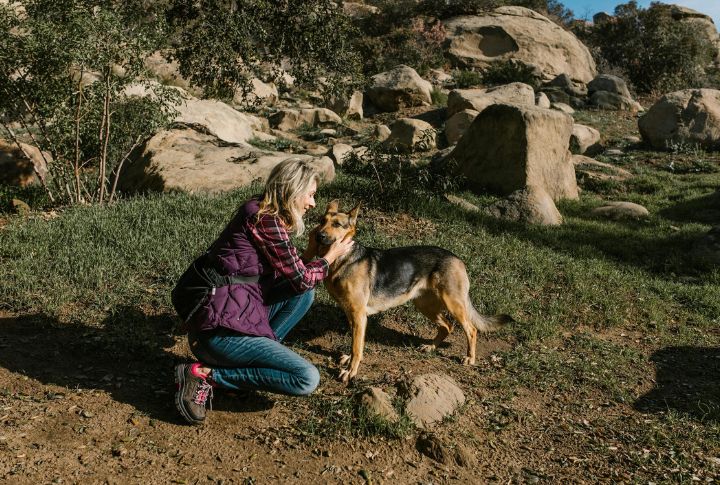
Sure, German Shepherds can be a lot. They’re high-energy, smart, and need direction. But “too much” depends on what someone’s prepared to give. For an active, engaged owner? They’re a perfect match. The idea that they’re only for professionals or hardcore dog people limits their potential.





